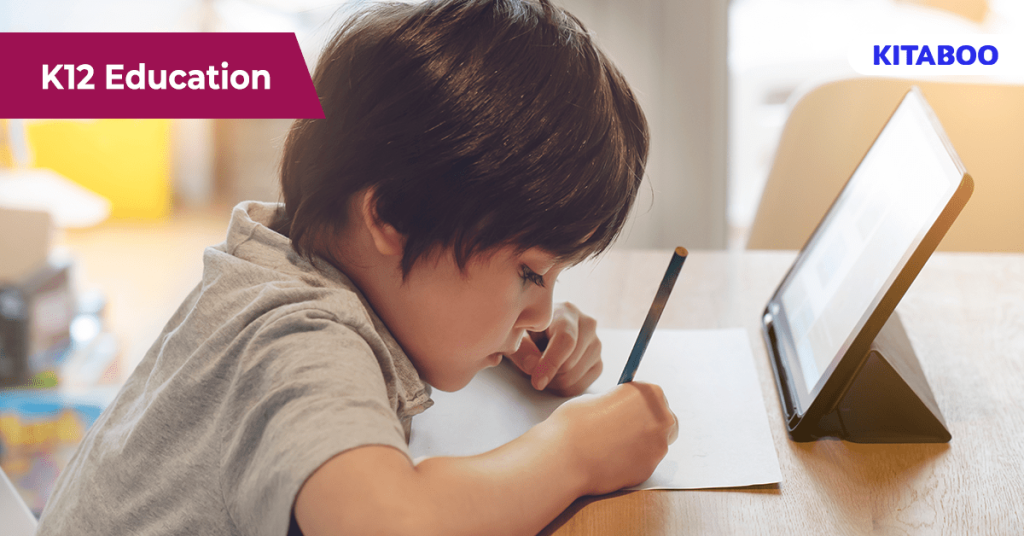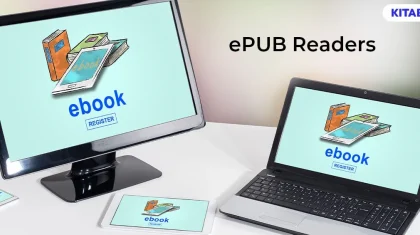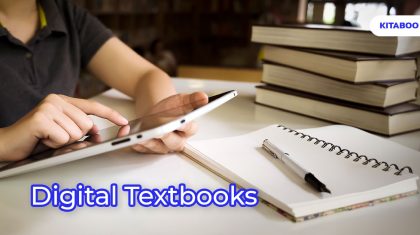
Should Tablets Replace Textbooks in K12 Schools? (2025)
Tablets have taken over laptops and computers both at work and in schools. Being an $18 billion industry, tablets are owned by 53% of U.S. adults, 42% of U.S. children aged under 8, and 81% of U.S. children aged 8 to 17.
As tablets are becoming increasingly popular, a new debate has emerged over whether there should be a switch from physical textbooks to eBooks on eReaders and tablets.
Let’s weigh the advantages and disadvantages to determine which of the two options offers greater learning assistance to students.
Table of Contents
- Advantages of Tablets over Printed Textbooks
- Disadvantages of Tablets over Printed Textbooks
Advantages of Tablets over Printed Textbooks
1. Tablets Increase Interest
Studies have revealed that students get disheartened and stressed when they are unable to keep up with their peers in K12 education. Using tablets makes learning fun and easy for students who have difficulty recalling what has been taught earlier.
With better graphical descriptions and illustrations, eBooks on tablets make it easier to keep students interested in the subject. Thus, multimedia learning helps students comprehend things easily and raises their interest levels.
Also explore: Digital Publishing Platform for Association and Societies
2. Tablets Prepare Students for a Technology-Driven World
The world outside school is highly competitive. Students who learn technology skills early in life are better prepared to face the corporate world challenges.
Tablets are used extensively at work, and students must be prepared to adapt to their usage from the start.
The highest-paying and fastest-growing jobs in the U.S. are technology-intensive. More focus should be placed on knowledge along with job-oriented skills, and utilizing tablets for K12 education is an added advantage.
Also read: Secure Your Intellectual Property: The Importance of DRM for Member-Based Organizations
3. Tablets Are More Affordable than Textbooks
Schools always encourage students to refer to additional books right from 7th grade. The money spent on purchasing textbooks for a senior secondary class student for one year is far more than a tablet’s price.
Using tablets instead of printed textbooks can be way more affordable than we imagine. Moreover, tablets can hold several textbooks on one device. This allows students to easily access various reference materials rather than using just a single book for a certain subject.
4. Tablets Can Be Updated Instantly
eBooks can be updated quickly on a tablet to incorporate new information or editions. It is especially advantageous for subjects such as Computer Science or Biology, where information is constantly updated.
Moreover, it is easy to pass on or share the added information with others. This is also beneficial for schools as they don’t have to frequently buy new software, hardware, or fresh physical copies of textbooks. As tablets are handy, they can be accessed for studying from any location at any time.
5. Tablets Save the Environment and Money
eTextbooks on tablets cost less than physical or printed textbooks. The average price of a K12 print textbook is higher than a 6-year digital textbook subscription.
If all schools switched to tablets from printed textbooks, it would be both cost-efficient and eco-friendly. Writing notes on tablets will save paper. Assignments, presentations, tests, and other projects can be more interactive via tablets.
6. Tablets Are Lightweight
Over time, various suggestions have been made across the world on the weight of a student’s school bag. It is a popular suggestion that school-going students must not carry more than 15% of their weight. However, these suggestions are not always followed. This not only leads to back pain issues but also causes tiredness after school.
While printed textbooks and laptops are heavy, a tablet usually weighs under 2 pounds. Thus, a tablet eliminates the need to carry bulky textbooks and provides relief to students.
Disadvantages of Tablets over Printed Textbooks
1. Tablets Can Distract Students
Too much technology can also be harmful to students. They may pay attention to emails, apps, websites, and games rather than their studies.
Young students may not be able to resist distractions like social networking sites and addictive games that are easily accessible via tablets. As a result, they end up spending most of their time on such distractions instead of paying attention to classes.
2. Tablets Require Proper Maintenance
Tablets are valuable gadgets that can be stolen or lost, resulting in the loss of studies for students. Moreover, a broken tablet needs a professional to fix, which can be time-consuming and costly.
On the other hand, textbooks can generally be repaired with simple supplies like tape or glue. Furthermore, physical textbooks cannot freeze, get hacked, or crash. And unlike tablets, there is no possibility of getting spyware, malware, or having personal data stolen from a physical textbook.
3. Tablets Can Cause Health Issues
Handheld technological gadgets cause Computer Vision Syndrome, headaches, eyestrain, itchy or dry eyes, and blurred vision.
People who use handheld gadgets often are more prone to musculoskeletal disorders related to repetitive muscle strain, including neck pain, fibromyalgia, carpal tunnel syndrome, and shoulder pain.
4. Tablets Can Make Students Overly Dependent on Technology
With tablets, students can avoid analyzing texts themselves and reading on their own as they can simply search for paragraphs in an eBook and look for answers on the internet.
With auto-correct and editing tools available on tablets, students can also avoid the need to remember grammar rules and spellings.
The practice of handwriting and reading textbooks will also be lost.
5. Tablets Require Internet Bandwidth at Home
Students require a strong internet connection with high bandwidth to access digital content and to finish internet-based homework. Low-income families might not be able to afford as much internet bandwidth.
Furthermore, institutions would also need to provide Wi-Fi connections and sufficient bandwidth, which can be a challenge when catering to a large number of students.
Conclusion
It can be said that switching entirely to tablets will be beneficial, when technology improves and nullifies the current disadvantages. For now, it is safe to say that tablets can be highly beneficial in K12 education , when used in tandem with printed textbooks.
If you’re planning to bring tablets into your classroom, consider partnering with KITABOO, a cloud-based digital publishing platform that allows you to create and distribute content with ease. With KITABOO, you can create highly interactive eBooks, accessible across devices and offline as well!
Contact our expert team now.
To know more, please write to us at contact@kitaboo.com.
Suggested Reads:
- Best eBook Authoring Tool
- Best Cross-Platform eBook Readers
- The Role of Technology in the Workplace
- Should Tablets Replace Textbooks in K12 Schools
- Advantages of eBooks Over Printed Books
- Advantages of eBooks Over Printed Books
- Is Online Education Better than Traditional Education?
- Digital Textbook Platform for K12 Publishers
- Digital Textbook Platform for Associations & Societies
- Digital Textbook Platform for Trade Publishers
- Digital Textbook Platform for Training Companies
- Digital Publishing Solution for Content Aggregators
Discover how a mobile-first training platform can help your organization.
KITABOO is a cloud-based platform to create, deliver & track mobile-first interactive training content.



